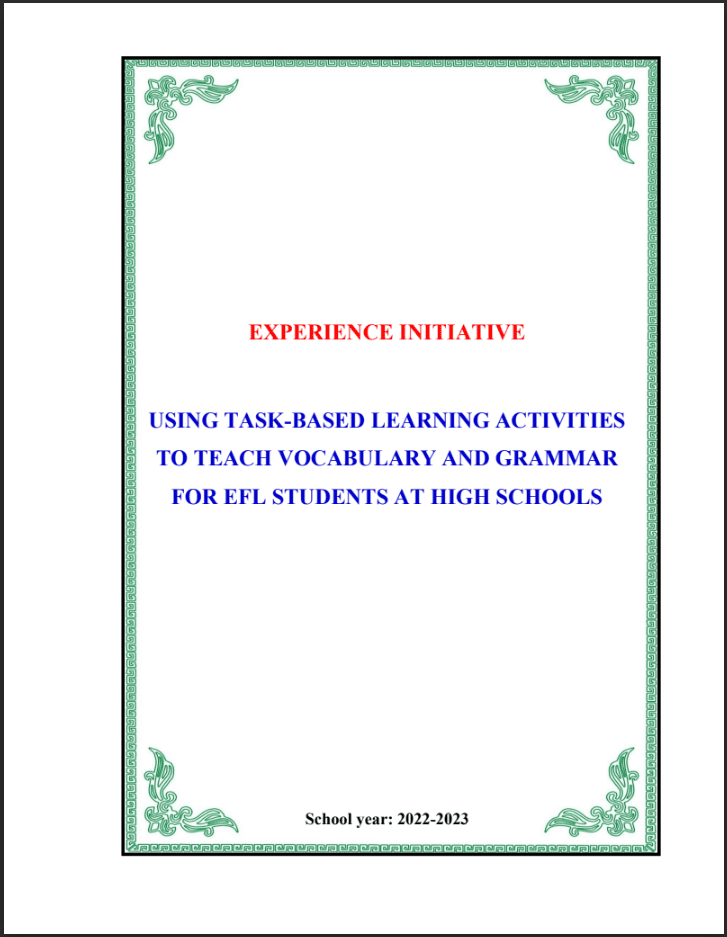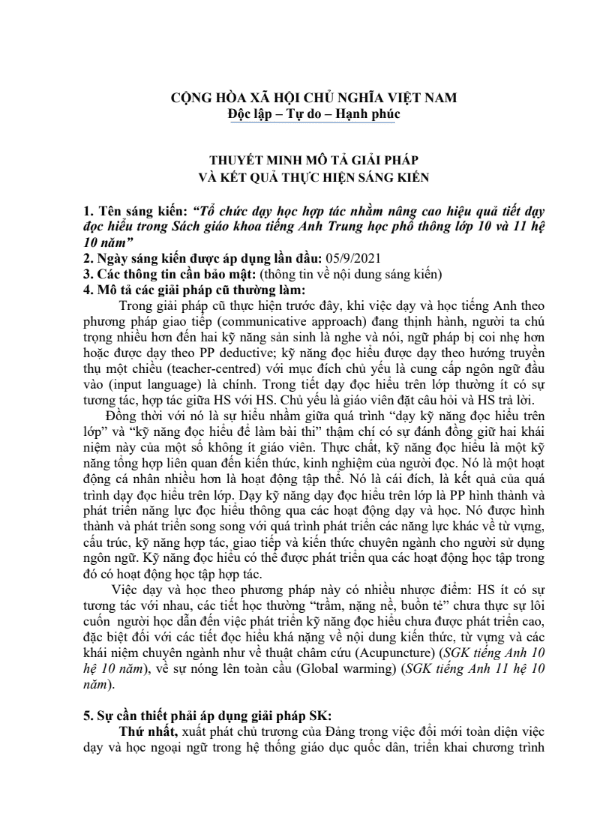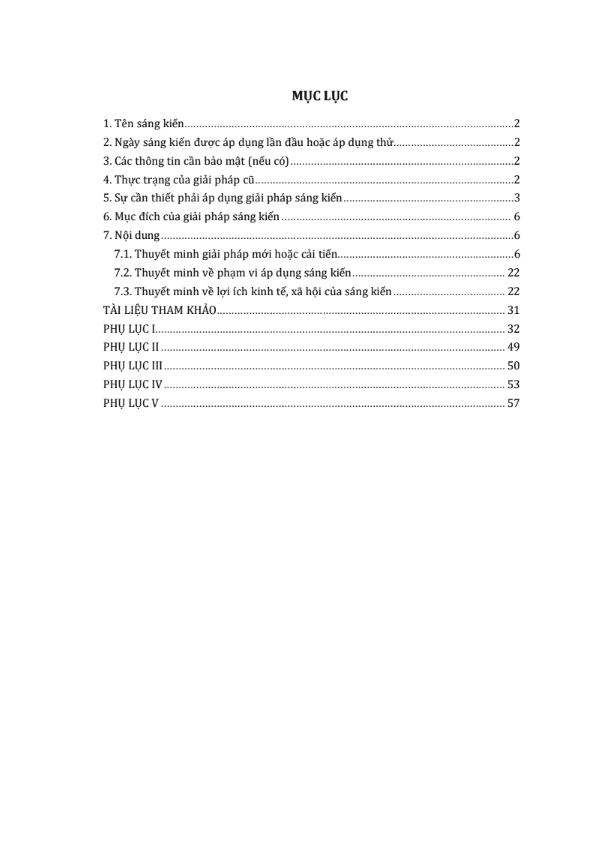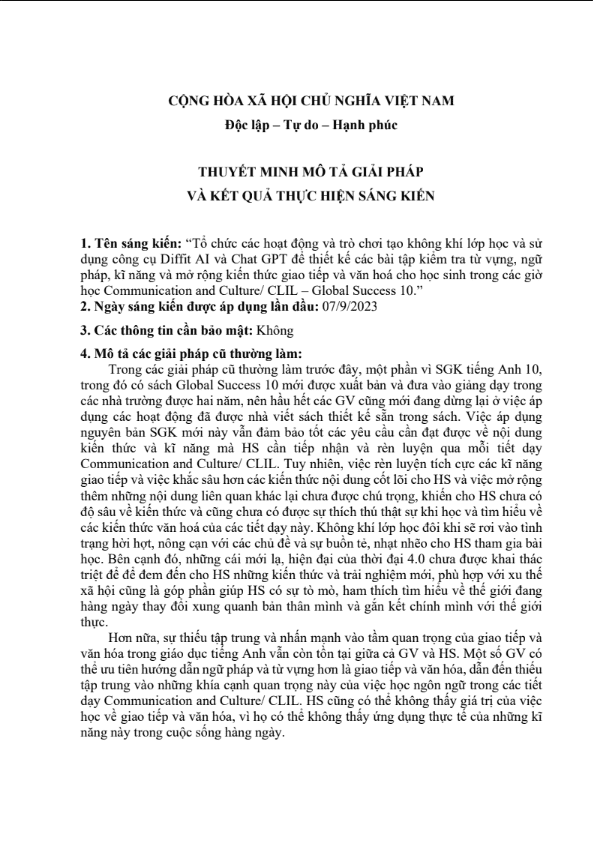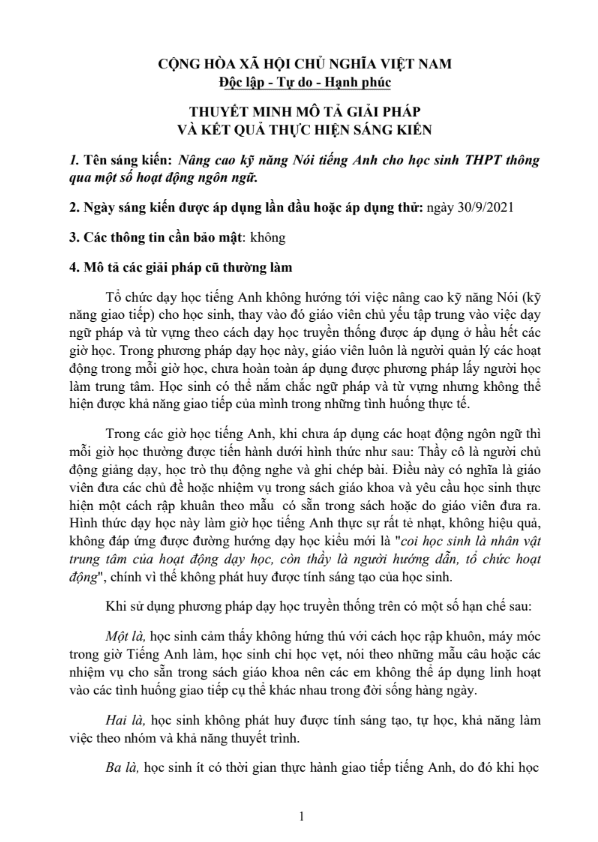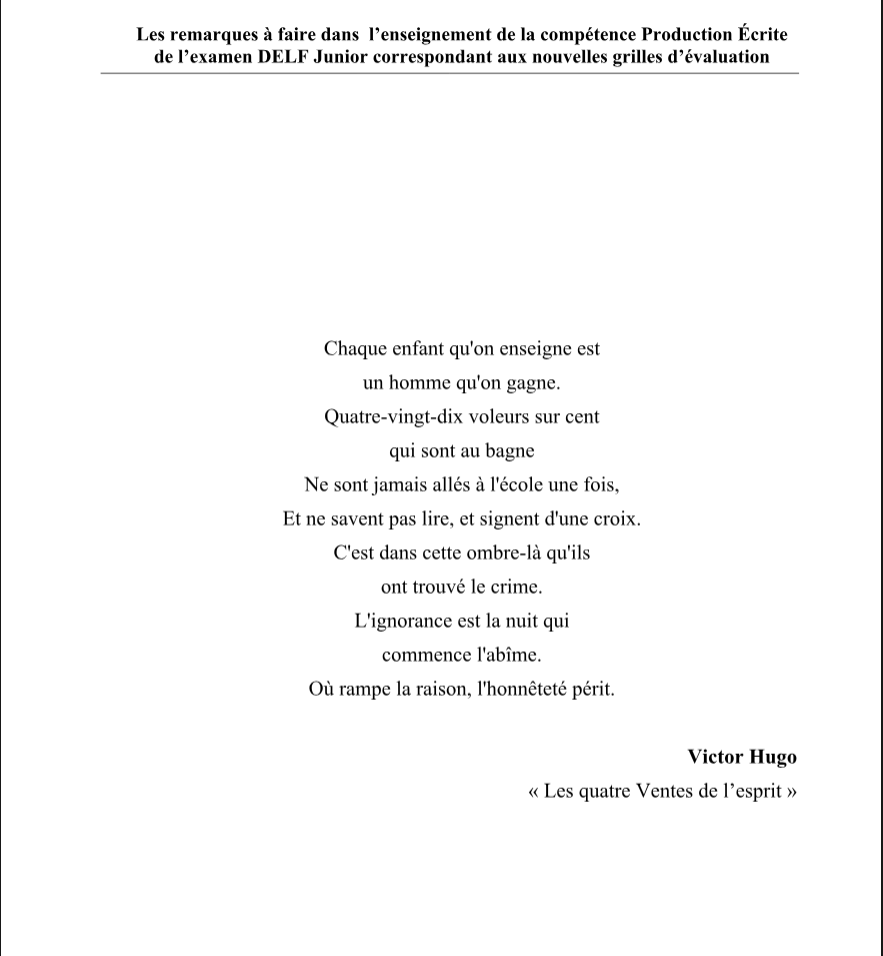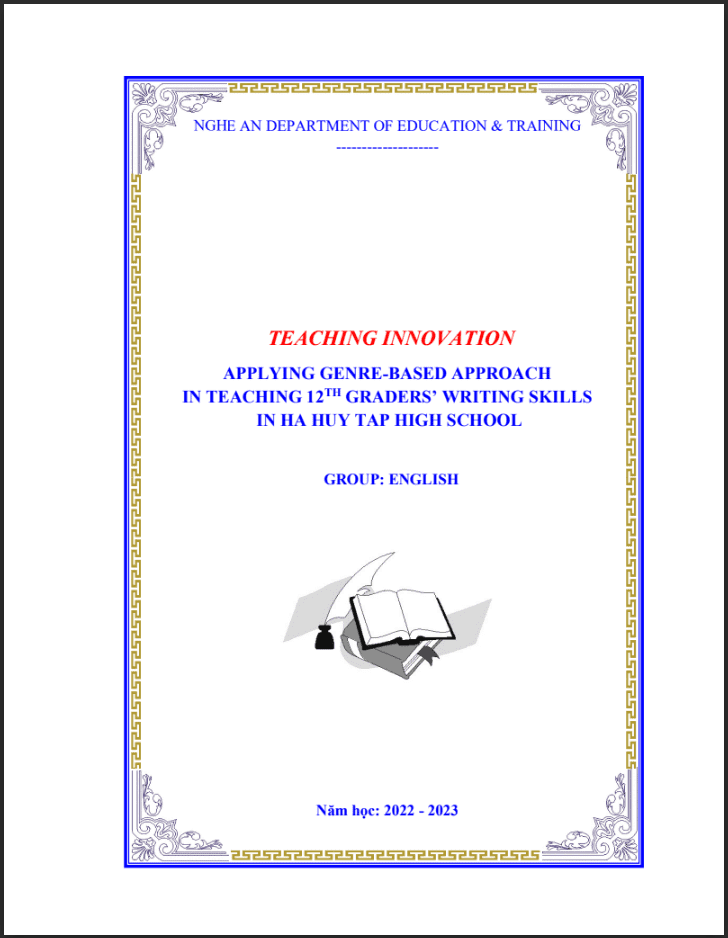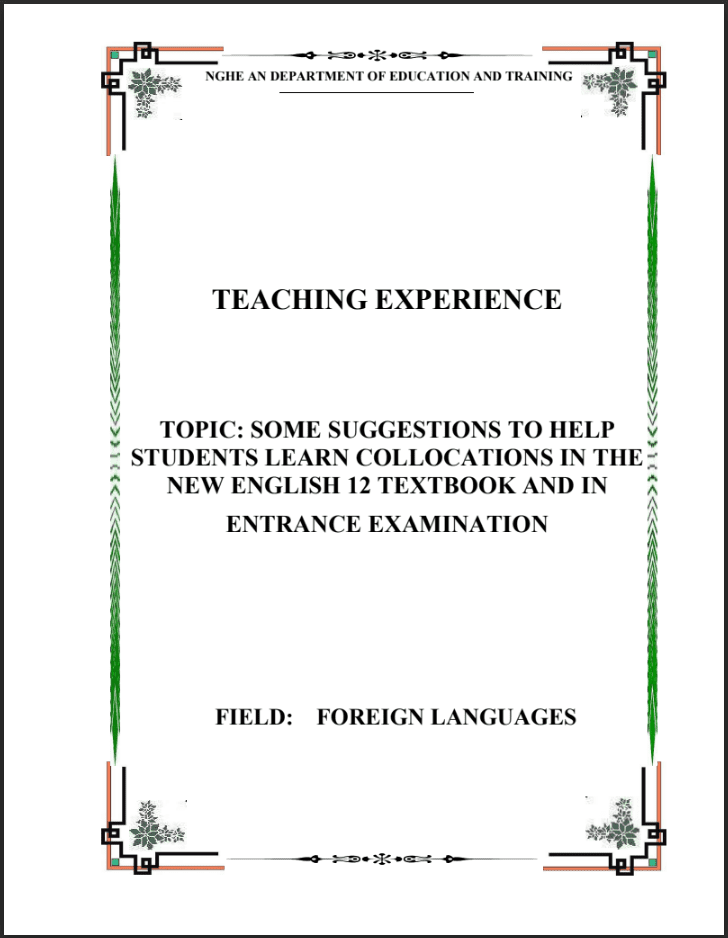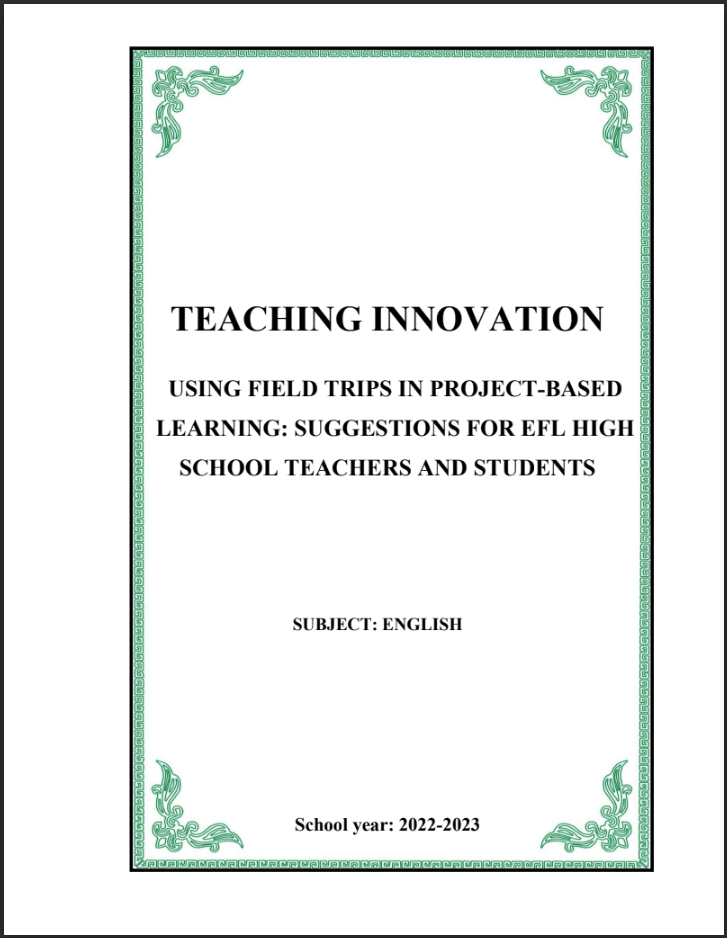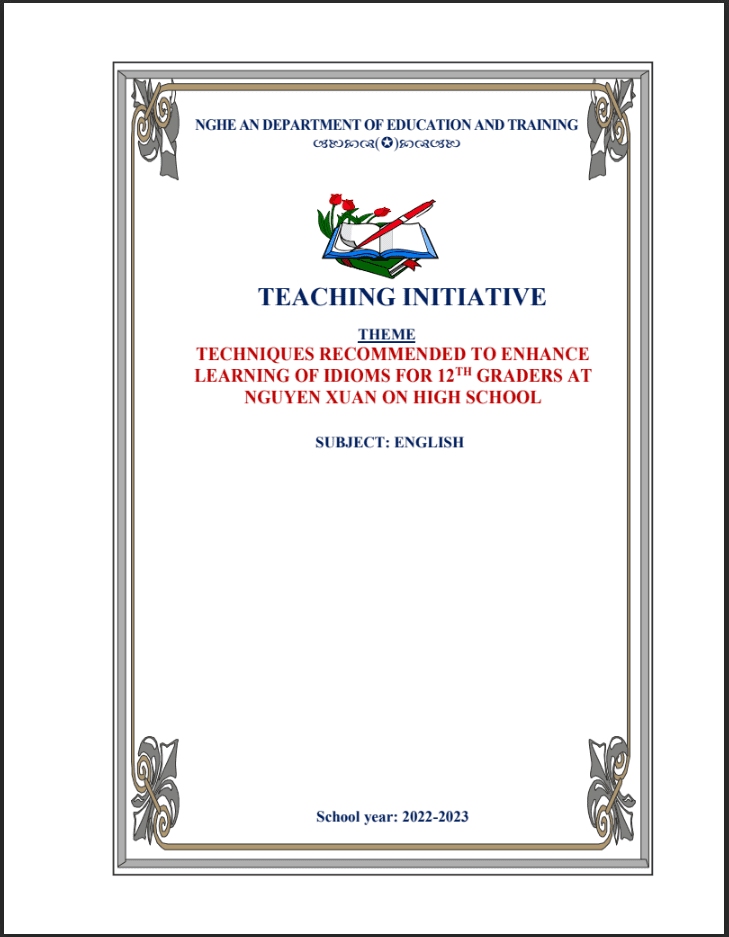SKKN Using Task-based Learning Activities to Teach Vocabulary and Grammar for EFL Students at High Schools.
- Mã tài liệu: MP0089 Copy
| Môn: | Tiếng Anh |
| Lớp: | 10 |
| Bộ sách: | Global Success |
| Lượt xem: | 469 |
| Lượt tải: | 8 |
| Số trang: | |
| Tác giả: | Lê Thị Thu Hương |
| Trình độ chuyên môn: | Cử nhân đại học |
| Đơn vị công tác: | THPT Huỳnh Thúc Kháng |
| Năm viết: | 2022-2023 |
| Số trang: | |
| Tác giả: | Lê Thị Thu Hương |
| Trình độ chuyên môn: | Cử nhân đại học |
| Đơn vị công tác: | THPT Huỳnh Thúc Kháng |
| Năm viết: | 2022-2023 |
Sáng kiến kinh nghiệm “Using Task-based Learning Activities to Teach Vocabulary and Grammar for EFL Students at High Schools.”triển khai gồm các biện pháp nổi bật sau:
Mô tả sản phẩm
PART 1: INTRODUCTION
1.1. Rationale
Learning a language means a process of encountering varied number of challenges, the role of the English language attributes itself to number of minute details that have to be taken up as a challenge of learning, because English is an International language and it is highly reputed globally. Some of the challenging situations come in mastery of pronunciation and articulation of words, sentence structuring, error free writing, adapting to a classic form of writing and yet another very important aspect would be grammar and vocabulary learning. Poor language skill among the weak learners especially in grammar and vocabulary will make things more challenging and stressful hence developing confidence among the second language learners needs to be the ultimate aim and objective of the language classroom.
Over the years, different approaches, methods and procedures, have been employed to help learners learn second language. In one period considerable attention was paid to teaching and teacher-oriented classes. The emergence of communicative language teaching (CLT) in teaching and learning exhibited a rush in the whole process of language learning. The application of activities in language learning evolved interest and better result among the students. It improved the mood and participation among students through an improved performance and soon many other methods found its emergence and existence in teaching learning process. Task-based learning (TBL) was one among those outcomes of such innovative teaching learning method popularly referred as task-based language teaching (TBLT) and this could be confidently used to teach tough concepts. TBLT can be best defined in the words of Richards & Rodgers as: “task-based language teaching refers to an approach based on the use of tasks as the core unit of planning and instruction in language teaching” (Richards & Rodgers, 2001, p.223). Some common concerns that affect student performance are poor language skills of reading, speaking, listening, writing, weak grammar and vocabulary, influence of mother tongue and other concerns.
In fact, students find the English language easy but applying the rules and presenting ideas professionally turns to be a challenging task. Hence, in this crucial situation the weak learners become the targets and the whole learning process ends up as a disaster to them, because they feel no importance is being given to them
in a classroom and one bad experience can turn language learning into a nightmare. To address this problem of the weak learners and to assure a better learning experience the task-based learning approach was initiated to the students and at the end they welcomed the new teaching method that restored confidence and improved performance among them. Application of TBL is more to do with activities, where it can be a student centric learning experience and the teacher just becomes the teaching instructor Richards, Platt and Weber define the activity or action of the learning process as: “An activity or action which is carried out as the result of processing or understanding language, for example, drawing a map while listening to a tape, listening to an instruction and performing a command may be referred to as tasks”. Tasks may or may not involve the production of language. A task usually requires the teacher to specify what will be regarded as successful completion of the task. For those reasons, this study sought to explore if task-based learning activities can help learners grow out of the aforementioned difficulties, therefore, this study was conducted with the topic: Using Task-based Learning Activities to Teach Vocabulary and Grammar for EFL Students at High Schools.
1.2. Aims of the Study
This study serves the aims as follow:
- To investigate the effectiveness of task-based learning activities in supporting students in learning vocabulary and grammar
- To examine the perception of teachers and learners to this approach in language lessons
1.3. Scope of the study
In this approach, learners are presented with a task or problem to solve and do not
concentrate on language features during performance. These tasks are meaning-focused and have a non-linguistic outcome. This new trend in English Language Teaching seems to be best applied to English for Specific Purpose (ESP) courses which has emphasized the need for teaching specialized vocabulary. Therefore, the present study is an attempt to investigate whether task-based approach is appropriate for vocabulary development in an ESP course.
1.4. Organization of the study
The study consists of three parts:
Part 1: Introduction
This part will include rationale, aims, scope, and organization of the study.
Part 2: Content
This part mentions the literature review of the topic with an overview of vocabulary and grammar learning. It also suggests some task-based learning activities which help students to improve their performance and products as well as their attitude during learning process. The application of these techniques is on the scale of units for students at high school. Additionally, the perception of teachers and learners to this approach will be discussed more in details.
Part 3: Conclusion
Conclusion offers the main findings of the study. As for the implication of the study, some suggestions are recommended to contribute to the success of evaluating students’ performance.
PART 2: CONTENT
2.1. Literature Review
2.1.1. Importance of Grammar and Vocabulary in Academics
Grammar delivers efficiency, competency and structure to a language as in the words of Harmer “Grammar is an important component in learning English in order to gain competency in using English”(Harmer, 2001, p.12). Grammar and vocabulary are considered as soul of a communication process. Ideas conveyed are effectively put forth through appropriate use of communication. Among the four language skills, most appropriate use of grammar and vocabulary comes in writing and speaking where an effective and organized transfer of ideas would favor communication without any barriers.
If someone wants to master English, they might know how essential grammar and vocabulary are to learn the language. It is true that grammar is significant for learning any language. Grammar is a set of rules that dictates how a language works, making it easy to comprehend. At the same time, without proper vocabulary, one would have no idea how to speak or write in English. It helps us make sense of our words. Grammar and vocabulary also dictate rules regarding how words are used and when they should be used. Without knowing this information, it would be impossible for us to understand anything or say anything at all.
Grammar and vocabulary are not just simply about learning how to use words correctly. It is also about understanding the patterns in languages worldwide. If learners see how these patterns work, they can use them and form sentences without worrying about forgetting rules such as subject-verb agreement or using the words in the wrong context. Understanding these rules makes it easier for learners to comprehend other people’s sentences when they communicate in English.
The importance of grammar and vocabulary cannot be emphasized enough because it helps learners know what is being communicated and how they can respond appropriately. If learners want to improve their English skills, they must start by learning the grammar rules and enrich their source of vocabulary and then practicing them until it becomes a habit.
2.1.2. Task-based Learning
The idea of “task” is not as simple as it might seem. Many definitions and
perspectives exist. Each one is discussed in turn. Possible definitions of and perspectives on the concept of “task” can be an imposed tax, duty, or piece of work
An everyday piece of work, A job responsibility, A general activity or exercise for second learners.
Task based learning (TBL) has a wide application for learning in a classroom atmosphere. Classroom is a place for exploiting new ideas with a goal to teach and refine knowledge by providing a platform of opportunities to the learners. Teachers need to bear in mind that the tasks using in classroom should be ranged from simple to complex or even comprehensive work designs that favor the learners to develop skills in communication. Prabhu describes task-based learning as, “A task is an activity which required learners to arrive at an outcome from given information through some process of thought, and which allowed teachers to control and regulate that process” (Prabhu, 1987, p.24). Through this we can conclude that learners can be made to work on themselves through tasks and aim to develop all the basic skills of a language. Task-based learning shows many aspects of advantages when it is used in teaching and learning process as follow:
TÀI LIỆU LIÊN QUAN
- 7
- 105
- 1
- [product_views]
- 5
- 173
- 2
- [product_views]
- 4
- 165
- 3
- [product_views]
- 4
- 129
- 4
- [product_views]
100.000 ₫
- 6
- 434
- 5
- [product_views]
100.000 ₫
- 2
- 507
- 6
- [product_views]
100.000 ₫
- 9
- 546
- 7
- [product_views]
100.000 ₫
- 4
- 409
- 8
- [product_views]
100.000 ₫
- 2
- 595
- 9
- [product_views]
100.000 ₫
- 0
- 538
- 10
- [product_views]

